Front line hospital staff can often struggle to break their fast during Ramadan
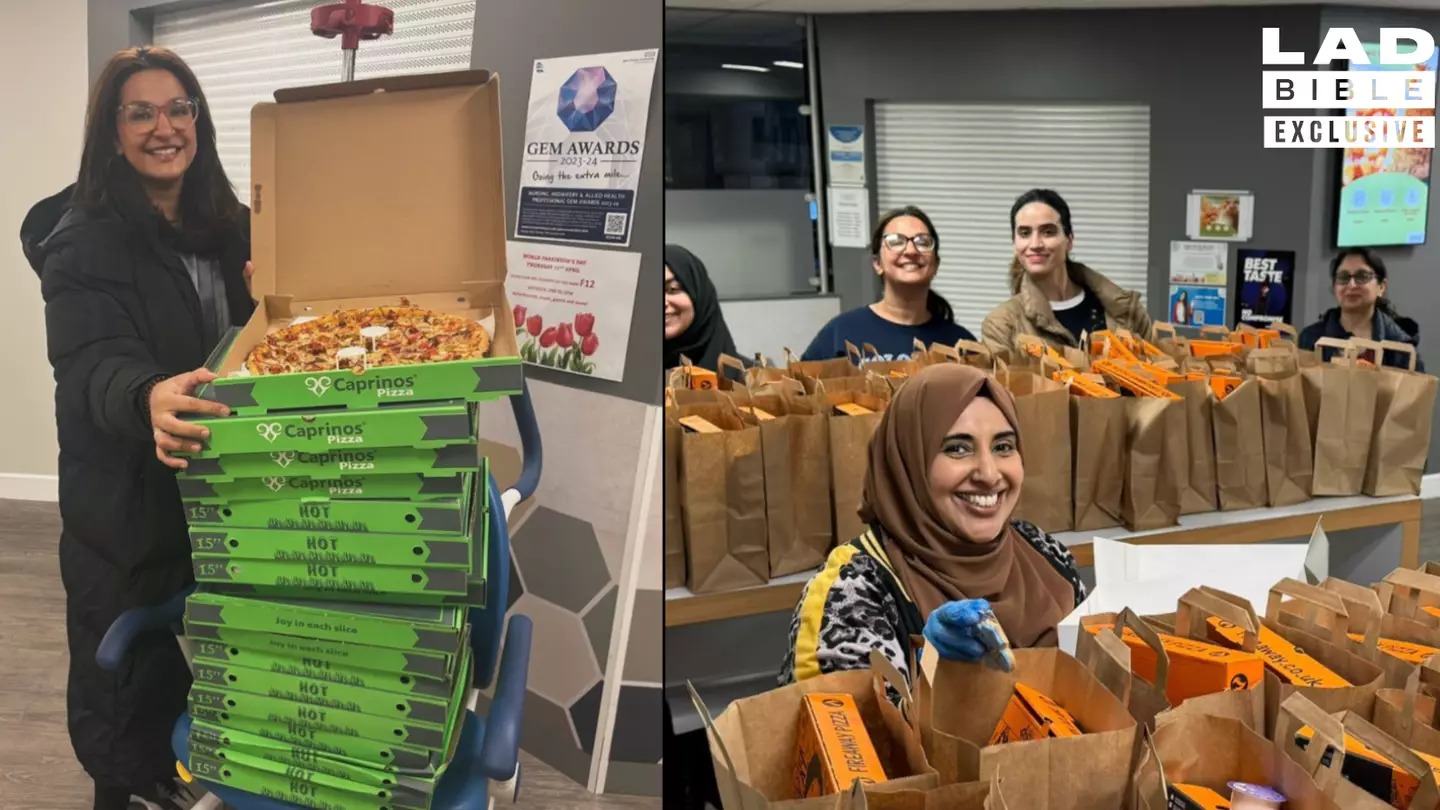
After working her nine-to-five, Monday to Friday, Jenna Gani helps provide up to 200 meals for isolated hospital workers, every single day during Ramadan.
The 28-year-old, from South Manchester, helps to make it easier for front-line hospital staff who struggle to break their fast on-shift.
During the month of Ramadan (10 March to 9 April), Muslims won’t eat or drink during the hours of daylight, and charity Hospital Iftars is there to donate heaps of local food from restaurants all around Manchester.
Hospital Iftars is a community project that was set up in 2018 and it currently provides free meals for workers in Wythenshawe Hospital, Manchester Royal Infirmary, Salford Royal and Bolton.
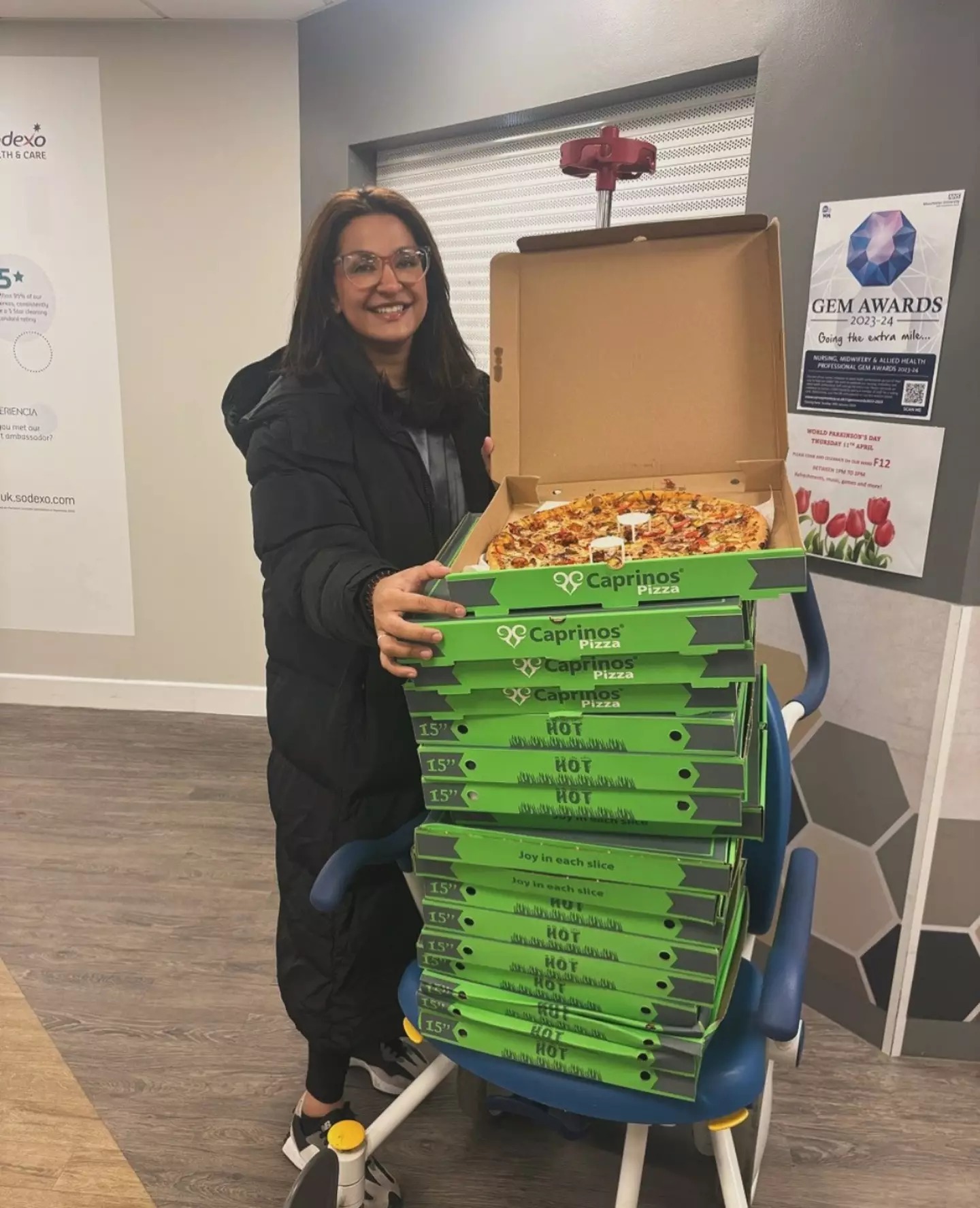
Jenna puts in an extra two hours at the end of her shift to lead one of the hospital sites and is responsible for ‘advertising, gathering donors from local food businesses around Manchester, planning operations for meal packs to be distributed to hospital staff and visitors, and raising awareness around breaking down the barriers of loneliness that can accompany those who are fasting and working’.
“There are many people who find themselves isolated at Iftar time (evening meal that is to break their fast), this includes carers looking after a loved one at the end of life, or patients who ended up at A&E for pro longed hours, partners in maternity wards and staff members,” Jenna told LADbible.
The Person-Centred Planning Champion has also opened up on the misconceptions surrounding Ramadan, adding: “I think a lot of people assume that Ramadan can’t be enjoyed, but the truth is it induces inclusivity amongst everyone and devotion to the Muslim faith.
“Another misconception is that Muslims are able to drink water and only abstain from food, but they’re not allowed food and drink – yes that means water too!”
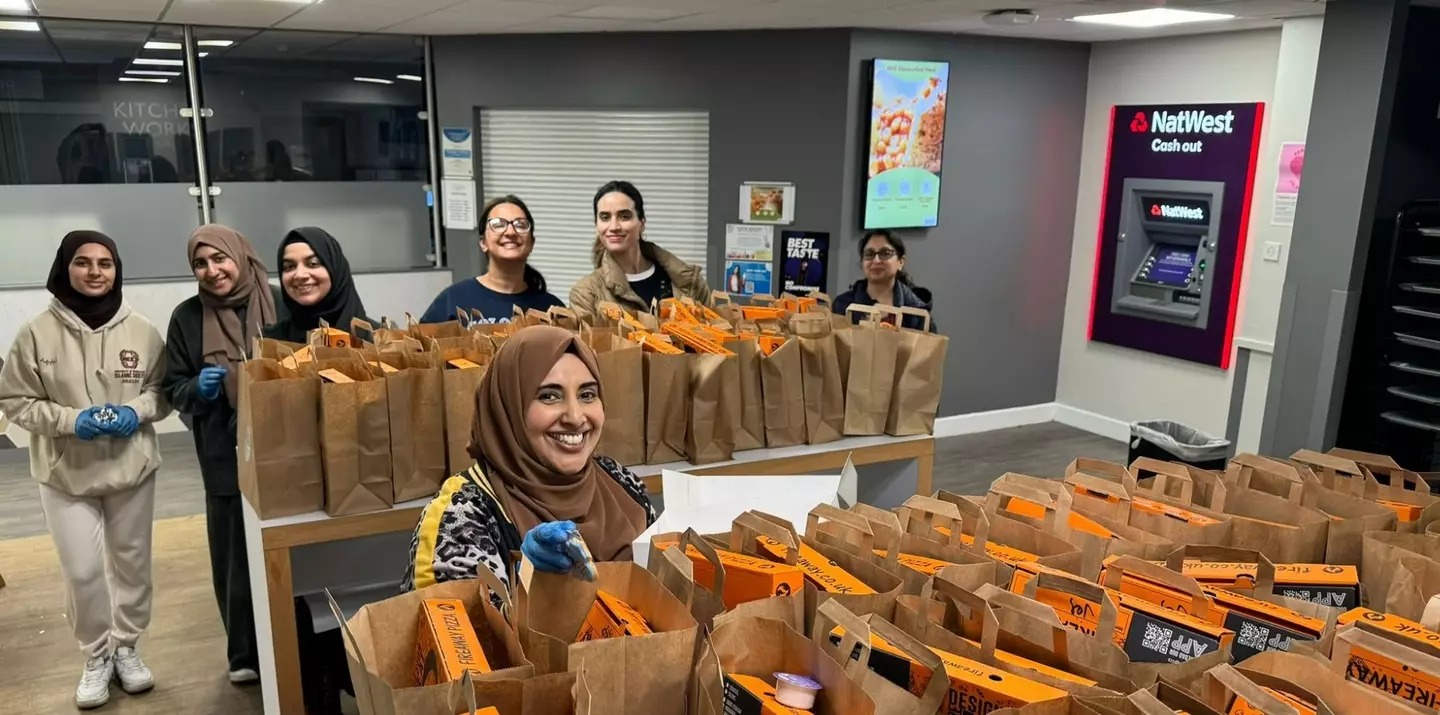
She joined the Hospital Iftars initiative a couple years ago and has worked closely with the founder to help ‘put a smile on people’s faces’.
Jenna explained that it’s not just providing food what’s important, but to help provide those who are fasting with a sense of community.
“The founder was staying with their mum, looking after her, and would go to the hospital quite a lot, and had conversations with people in lifts and corridors around the area, who said Ramadan was a lonely period for them,” she explained.
“Healthcare professionals were breaking fast alone and this individual was seeing a lot of people from similar faith and culture spending extended hours on the ward and there was no plans to break their fast together.
“Visitors said that they would rely on takeouts and then a message was sent to well-known contacts, to form the Hospital Iftars family.
“The family is made up of both Muslim and non-Muslim members, who see the project as life changing and beneficial for community cohesion.
“This is currently the 6th year running!”
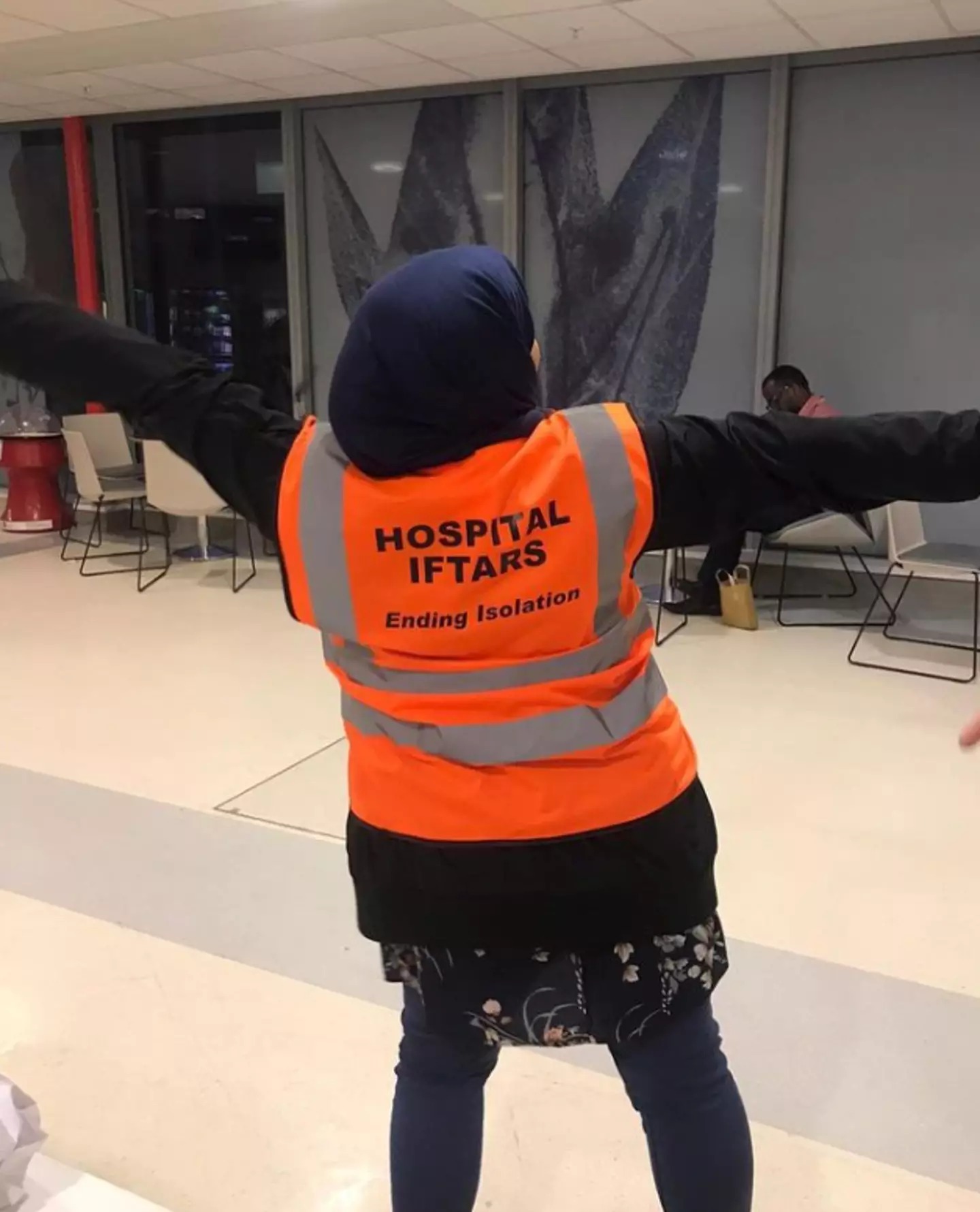
A junior doctor, who is grateful for the service, said: “What I really, really gained from Hospital Iftars this year, is a lot more than just the ability to have easy access to food to break my fast.
“It’s actually the community and that element of having people there.
“I’ve had some very, very, busy shifts, where I’ve been stressed out or I have been working a lot.
“And just to be able to have that break, where I can go down to the cafe and see friendly, smiling faces, see kind people that’s given me so much peace during this month.
“Just having that kind person coming up to the ward and handing me my meal has made such a difference and made me so happy and brought me joy in the midst of busy and stressful times.”
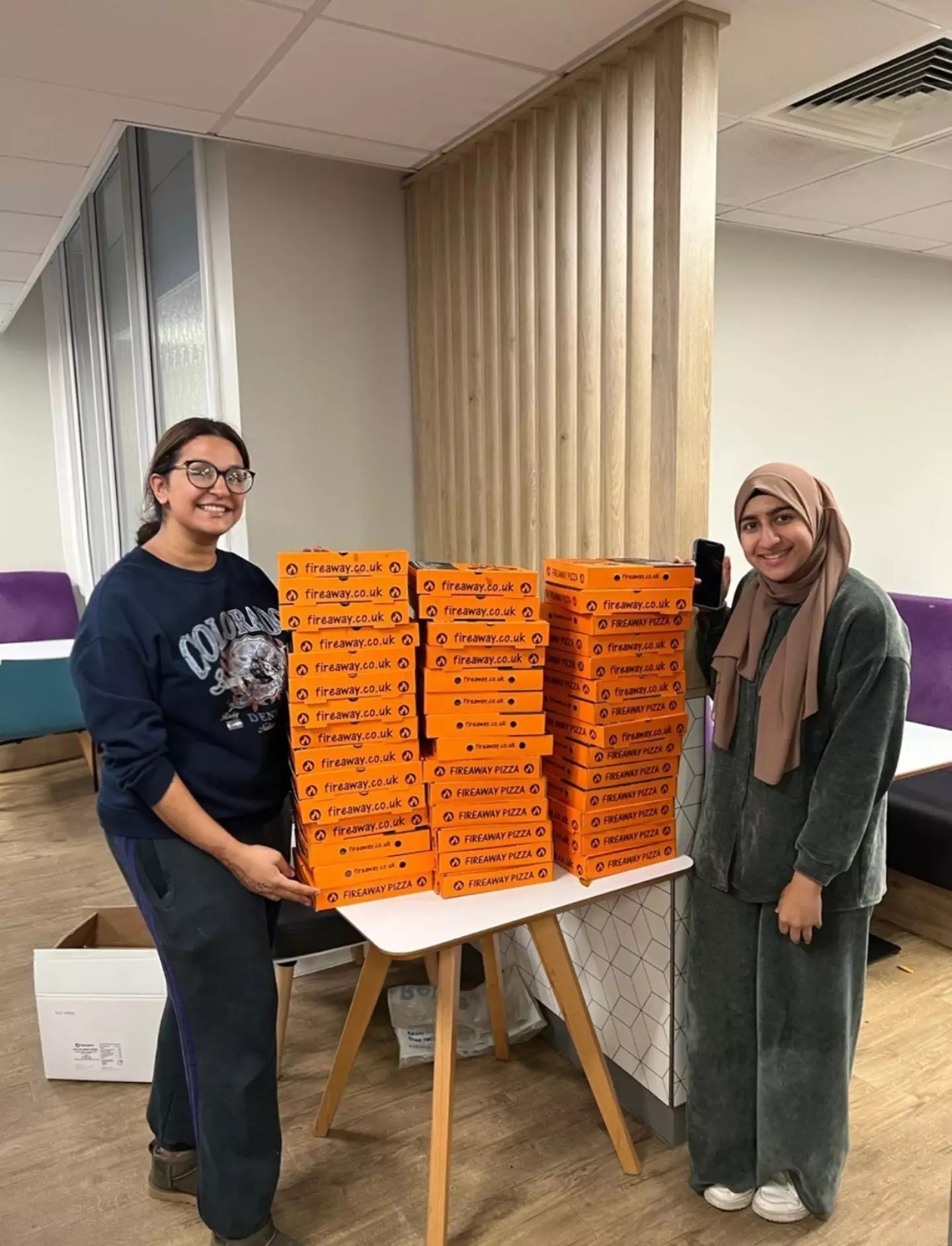
A trauma and orthopaedic junior doctor also said: “I think this Iftar project is very useful because there is many people working here for 11/12 hour shifts and they can’t go out of the hospital to get their Iftar, and some of them stay overnight also.
“It’s very difficult to get food at this time and very difficult to go out and even collect.
“They always deliver the meal to places where [healthcare professionals] can’t leave, like in ICU, and it was very useful.
“Hopefully this project can be supported to the maximum.”
Jenna said that the goal of Hospital Iftars is to ‘reach a wider scope of people, nationally’.
“We hope to structure the organisation across many more hospital sites, as the need to provide this for more Muslims is constantly asked for,” she said.
“We want to help enable the project to continue.
“This will require more volunteers, more donations and hopefully building up a large network of local organisations who can collaborate with us in future years to come.”
If you would like to donate, you can click here.
Featured Image Credit: Instagram/@hospitaliftars












